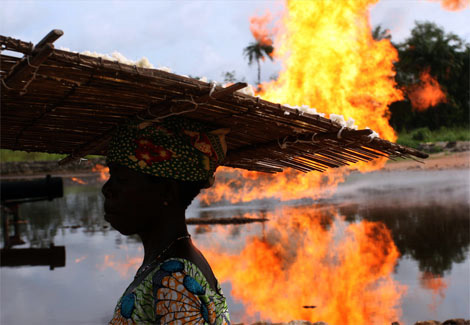2.3 Worse development indicators
There are strong links between the resource curse and poor development outcomes, which show through rising inequality and poverty levels. This is primarily due to the poor economic performance and political barriers noted above preventing the broad-based distribution of resource rents. But there are also wider social and environmental impacts of the curse that play out.
- i.Increased risk of violence – an abundance of natural resources can destabilise the fabric of a society provoking or sustaining internal conflicts and violence. Oil-producing countries are twice as likely as non-oil producers to have civil wars. Elites or warlords can militarise groups as they seek to capture access to resource sites, and disgruntled communities can take up arms if they feel they are not receiving a fair share of rents or being adequately compensated. Nigeria’s Delta region, the main onshore oil producing region, has seen ongoing violence for decades.
- ii.Environmental mismanagement – the extractive nature of point-source resources means they can come with significant environmental impacts, which if not regulated and managed can be highly detrimental to the surrounding landscape and communities. A common criticism of Chinese resource extraction in Africa is that they care less about mitigating negative environmental impacts than Western companies (Marsh, 2015; Shinn, 2016). A cursory look at the history of Western oil companies such as Shell and Chevron in the Niger Delta, however, show a blatant disregard for safeguarding against environmental degradation as there are numerous instances of oil spills and gas flaring that have made some areas uninhabitable.

All of these factors work in different combinations. Obeng-Odoom (2013, p. 229) reminds us of the need to be aware of the nuances of this debate, that it is complex and so will be an interplay of different factors – no single one is exclusively attributable to the resource curse effect. Resource wealth as a blessing or curse is not monolithic ‘but it is a contested arena where curses and blessings co-exist’.
